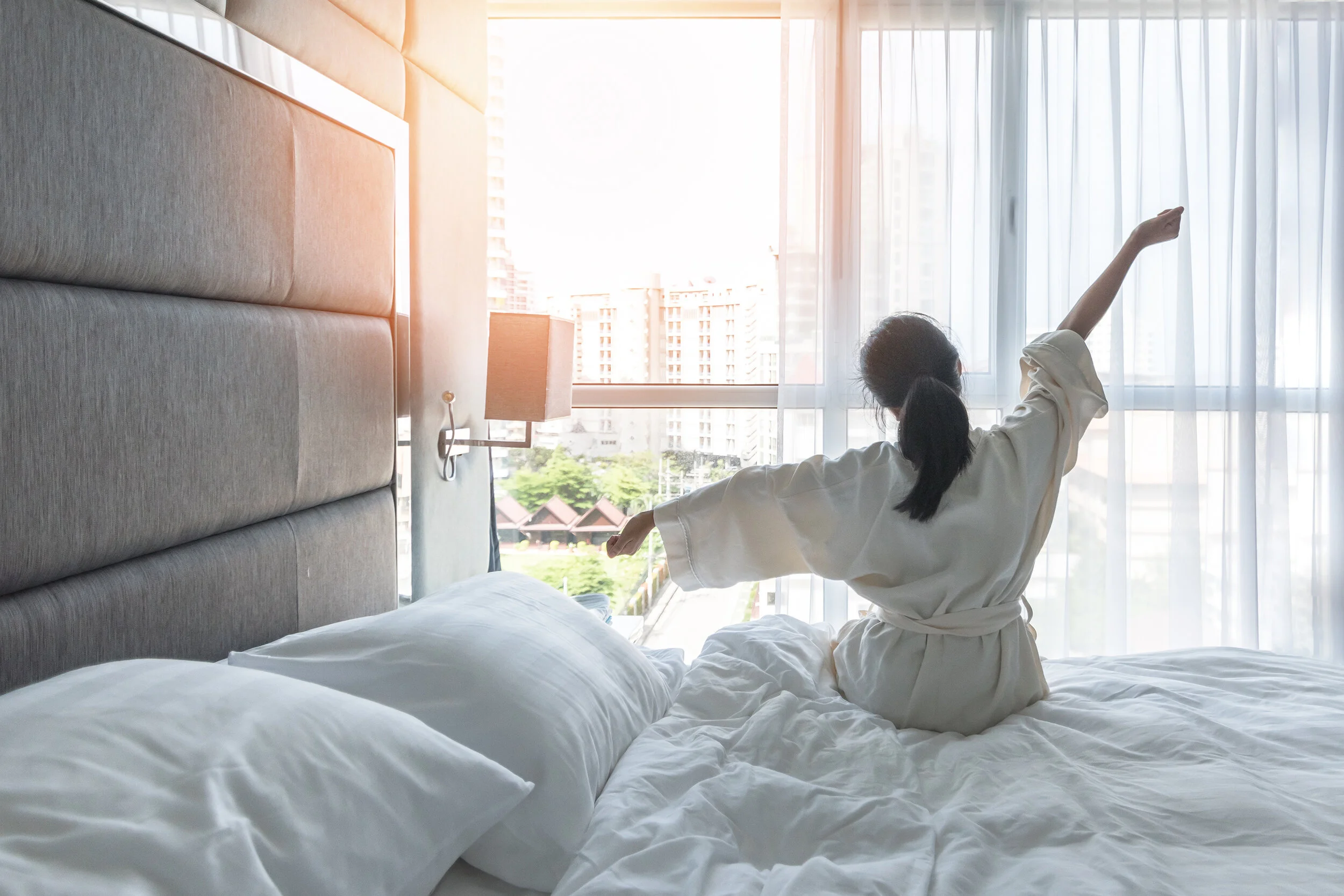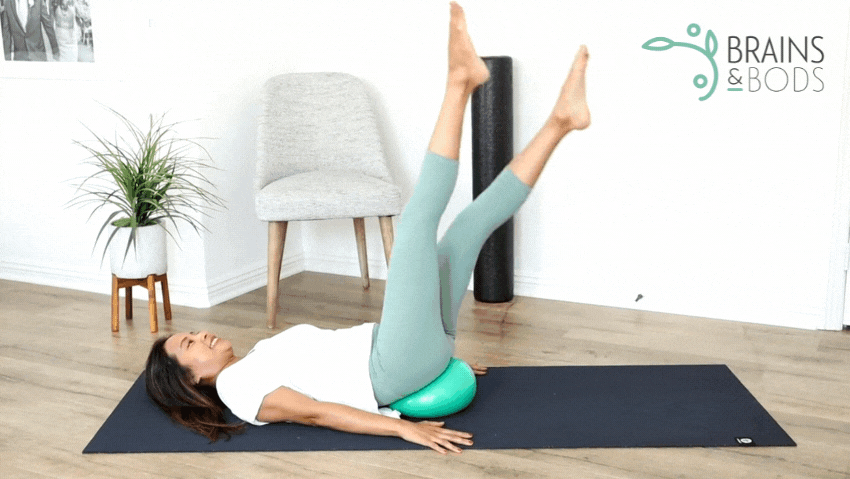Why Your Body Needs Sleep
You can’t underestimate a good night’s sleep. Not only is sleep critical for our bodies, but for our minds. Most people attribute sleep to resting, but there is much more going on underneath the surface. I will be highlighting some interesting facts and discussing conclusions from current research in the book “Why We Sleep” by Mathew Walker, PHD.
I think many of us have heard that it's recommended we get 7-9 hours of sleep at night, yet about a third of the population does not get enough sleep. In fact, if you normally get less than 6 hours of sleep at night, it weakens your immune system and also puts you at a higher risk for certain cancers and other diseases, such as Alzheimer's disease. The CDC has actually named insufficient sleep as a public health epidemic. There are many scientists that are advocating for doctors to “prescribe” sleep.
What does sleep actually do for our bodies?
Brain Health
Enriches executive functioning such as our ability to learn, memorize, as well as our decision making centers.
Emotional Balance
Recalibrates our emotional brain’s circuits and enhances our ability to deal with psychological challenges and temperament.
Immunity
It restocks the immune system so that we are able to fight off infection and sickness.
Metabolism & Gut Health
It balances our insulin and glucose levels. Sleep also helps regulate our appetite and assists in maintaining a healthy gut microbiome.
Heart
Adequate sleep is also correlated with cardiovascular health. During sleep, our blood pressure lowers while helping keep our heart in good condition.
What happens when you don't get enough sleep?
There are many consequences that can occur due to lack of sleep, most of which affects the areas of the body listed above. Besides, lack of energy and fatigue you may feel during the day, long term effects can be detrimental. There is a great deal of research still being done on sleep and how it affects certain areas of the body over time. Here I’ve included a few major studies and their conclusions.
Brain Health
The Wall street Journal recently published an article discussing a study that found sleeping 6 hours or less linked to higher dementia risk. This study came from the Nature Communications scientific journal, which analyzed the sleeping habits of 8,000 people over 25 years. They concluded that 50 year olds sleeping less than 6 hours or less at night had a 22% high risk of developing dementia later in life. Even more shocking, 60 year olds (with the same habits) were 37% more likely to develop dementia later in life. These groups were also compared to people who slept 7 or more hours a night.
Heart Health
There is a Japanese study that looked at over 2,200 male workers. It was concluded that over a fourteen year period of getting less than 6 hours of sleep a night was associated with 3x greater risk of suffering a cardiovascular event, such as sudden cardiac death.
Adults 45 years or older who sleep less than 6 hours were 200% more likely to have a heart attack or stroke in their lifetime compared to persons sleeping 7 to 8 hours a night.
Metabolism & Weight Gain
Sleeping less than 7 or 8 hours a night increases your probability for weight gain, being overweight, or obese, and increased your likelihood of developing type II diabetes. What happens is that the body becomes unable to manage your calories effectively and eventually has difficulty regulating your blood sugar. This is due to an imbalance of hormones that signal when your body is full or hungry. Not to mention, the less a person sleeps, the less energy they have to exercise. On top of that, there is an increase of chemicals that stimulate appetite, especially for sweets and carbs.
I’ve learned that sleep in itself is very complex. There are many processes happening in our bodies as we sleep, not to mention activity happening in the brain. Sleep is incredibly important for our minds and bodies to function efficiently and well. It’s hard to fight the productivity culture that we live in and allow ourselves to get the rest that our bodies desperately need. Make changes where you can and try to get some Z’s! Below are 12 ways to get a better night’s sleep.
12 Tips to Help You Sleep
(per recommendations by Matthew Walker, PhD)
Stick to a sleep schedule!
This means waking up and going to bed at the same time everyday.
Exercise
Try to get 30 minutes of exercise a day but no later than 2-3 hours before bedtime.
Avoid caffeine and nicotine
Sodas, certain teas, and even chocolate contain caffeine which is a stimulant. The effects can last in your system for 5-7 hours after consuming. Nicotine withdrawal is often a reason smokers get up early.
Avoid alcoholic drinks
A nightcap can help you relax, but heavy drinking affects your REM sleep, as well as your breathing at night.
Avoid large meals and beverages late at night
Indigestion and frequent urination can interfere with your sleep. A light snack close to bedtime might be okay.
Avoid medicines that delay or disrupt sleep
Some over the counter medicines can affect sleep, as well as prescribed medications. It's beneficial to ask your doctor if you are taking medications that may be affecting your sleep.
Don’t take naps after 3 PM
It can make it harder to fall asleep at night. Keep in mind there are benefits to a short nap during the day!
Take time to relax before bed
Find a relaxing activity like reading or journaling before bed.
Take a hot bath
Your body temperature drops after getting out of a hot bath which can help you relax before bed.
Keep you bedroom dark, cool, and gadget free
Bright lights, warm temperatures, cell phones, and TV’s are often distractions that disrupt our sleep
Natural sunlight exposure
Sunlight helps regulate our sleeping patterns. Try to get 30 minutes of sunlight every day. Waking up with natural or bright lights help. If you have trouble falling asleep, it is recommended to get an hour of sunlight in the morning and turn down lights in the house nearing bedtime.
Don’t lie in bed awake
If you’re lying awake for more than 20 minutes, use a relaxing activity to help make you sleepy. The anxiety of being up can make it more difficult to fall asleep again.












Do you struggle with side planks? Try a modified version on your forearm and knee. You can add different exercises in this position to work the side body while working towards a full side plank.